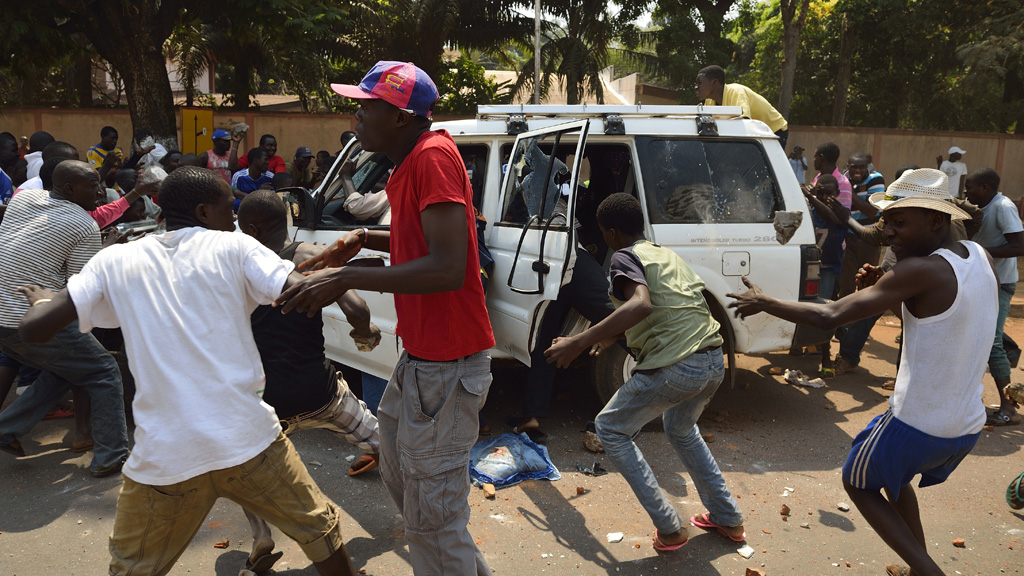Tension in Bangui amid fragile hopes of truce
Sporadic gunfire returns to the capital of the Central African Republic after reports of a truce between Muslim and Christian fighters.

Members of rival militia groups reportedly embraced each other in the Bimbo district after days of fighting and looting.
Bangui’s markets opened again after the crisis drove most traders away, in a sign of improving security.
But with Christian anti-Balaka forces having taken control of Bangui from retreating Muslim Seleka fighters, there are fears of reprisals against the Muslim minority.
President Michel Djotodia, CAR‘s first Muslim leader, and Prime Minister Nicolas Tiangaye resigned on Friday under intense international pressure after they failed to halt violence between Seleka and its rivals.
Security remains precarious despite the presence of 1,600 French troops and 4,000 African peacekeepers.
A number of mosques have been burned down, and a crowd tried to attack a Muslim man on Sunday, claiming he was responsible for killings and abuses against Christians.
At the checkpoint where he was stopped people burnt his car and were ready to attack when French soldiers came and fired guns into the air to disperse the crowd.
One of the crowd, a student called Lionel, said: “We’re going to stay here, for all those Muslims who come in front of us. We are going to massacre them. After what they’ve done to us, we’ve had enough.”
Channel 4 News Chief Correspondent Alex Thomson reported earlier on Saturday that Chadian soldiers were escorting large numbers of their nationals out of the country by road.
Read more: Hanging laundry on helicopters as Chadians flee the Central African Republic
Many refugees, mainly women and children, from the neighbouring country remain in a makeshift camp at the capital’s airport.
Thomson said gunfire could be heard in Bangui on Saturday night despite reports of a local reconciliation between rival militia groups.
The United Nations called for calm and increased flights out of the country for foreigners. Governments of other African countries have evacuated nearly 30,000 of their citizens already.
At least 1,000 people have been killed and tens of thousands have fled their homes since violence broke out in the Christian-majority country in December.
Rebuilding a state
John Ging, a senior official at the UN Officer for the Co-ordination of Humanitarian Affairs, told Channel 4 News the immediate priority was to get food, clean water and other basic supplies to the estimated 1 million people displaced by the violence.
After that, he said, the international community would have to begin rebuilding this failed state from the bottom up.
“The state is non-existent here. This is a country that doesn’t have a functioning health system, security apparatus, the police, the army, the school system…I mean it’s in total collapse as a state.
“So we’ve got to come in here and help to rebuild the infrastructure of a state.”
Alexandre-Ferdinand Nguendet, the head of Central African Republic’s transitional assembly, is officially in charge of the country until the body can select a new leader to usher in elections later this year.
-
Latest news
-
Bridgerton stars Nicola Coughlan and Luke Newton on season three, diversity and Irish arts4m

-
India elections: opposition leader Arvind Kejriwal granted bail1m

-
Could Northern Lights appear over the UK again tonight?2m

-
Eurovision final: protests, expulsion and an unexplained absence2m

-
‘It’s not clear what Biden sees as a red line in Gaza,’ says former US diplomat4m

-




